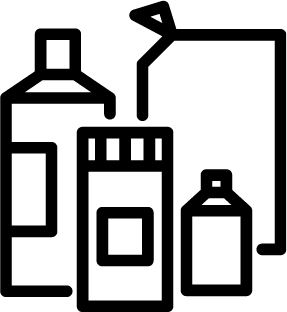FAQs — Ethics
Are London Stone's products ethically sourced?
Yes they are. It's very important to us and something that we are firmly committed to. All of the foreign suppliers we work with comply with the ETI Base Code. We work closely with them and support them to continually improve the conditions for workers. We pay regular visits to their production sites and also work collaboratively with other stone companies to improve conditions in the broader supply chain. For more details on our ethical policies, please contact steven@londonstone.co.uk
What constitutes ethically sourced stone?
The Ethical Trading Initiative (ETI) have established a base code for ETI members to adhere too. Although not formally enshrined in UK, European or International law, the ETI base code is the ethical standard that companies use as guidance to source products in an ethically compliant way. The ETI Base Code:
- Employment is freely chosen.
- Freedom of association and the right to collective bargaining are respected.
- Working conditions are safe and hygienic.
- Child labour shall not be used.
- Living wages are paid.
- Working hours are not excessive.
- No discrimination is practiced.
- Regular employment is provided.
- No harsh or inhumane treatment is allowed.
What are the main issues effecting working conditions in foreign supply chains?
Child labour is the single biggest issue that has gained the most attention in Western societies but there are many more issues that affect workers in the supply chains of developing countries. Unsafe working conditions, low wages, bonded labour and discrimination are all prevalent in foreign supply chains.
What can UK and Western suppliers do to improve conditions for workers in their foreign supply chains?
The most important thing that a supplier can do is to understand the tiered structure of a foreign supply chain. London Stone source our Indian Sandstone products from Tier 1 suppliers. We regularly visit these Tier 1 suppliers and the working conditions are good. But where do our Tier 1 suppliers source from? This is the question to ask because conditions further down the supply chains, in the stock yards of Tier 2 and the quarries of Tier 3 are completely different to what we see in Tier 1. Only by understanding the complex structure of supply chains can we identify where we can focus our efforts on addressing child labour, unsafe working conditions, low wages, bonded labour and discrimination.
What can clients do?
Clients, especially trade clients can make a real difference in the fight to improve conditions for workers in foreign supply chains. If you buy or specify natural stone, ask your stone suppliers about what they are doing to improve conditions for workers, challenge them to prove that they are sourcing products ethically. Talk to your customers too, educate them about the human cost of buying cheap natural stone that has been sourced without any regard for the welfare of workers. It doesn't sound like much, but talking about the issues at every opportunity and supporting suppliers who source their products ethically does create leverage for change.
Is ethical stone more expensive?
The headline is that yes, sourcing stone ethically does cost more money. Delve a little deeper though and it becomes immediately obvious that sourcing ethically offers long term value for the consumer, the worker who makes the stone and for society in general. For the consumer, stone sourced ethically is produced to better quality standards and so offers better value over the life cycle of the product. It’s also safe to assume that ethically sourced stone will benefit from the other positive elements associated with a professional supply chain such as: reliability, good communication and careful packaging. A worker manufacturing stone in an ethical supply chain, can expect to be paid a living wage and to be able to work reasonable hours in safe and hygienic working conditions. This is beneficial to the individual workers health and the long-term health and social welfare of his/her family. As for the wider society, a society that properly values the welfare of all the people within it is a healthier place for everyone.
Why don’t we just walk away from imported stone and buy British Stone?
One word and unfortunately, it’s a dirty one, money! Let’s go back 25 years. A client looking to install a natural stone patio would have been faced with an extremely limited choice of materials to use. Yorkstone and Welsh Slate were about as far as the choice extended to and both materials were prohibitively expensive, way beyond the budget of the majority of people in the UK. Indian Sandstone then came to our shores and this opened the floodgates for many other types of stone to be imported into the UK for use in the garden. Imported natural stone has given landscapers and designers an amazing choice of materials to use in designing and building gardens. As long as imported stone is so much cheaper than British Stone there will always be a demand for it and we’ll never be able to walk away from it. So, imported Sandstone is here to stay which means that UK suppliers and consumers need to be at the forefront in improving conditions for workers. From both a moral and business point of view, using our expertise and experience to help improve working conditions in foreign supply chains is the right thing to do.













